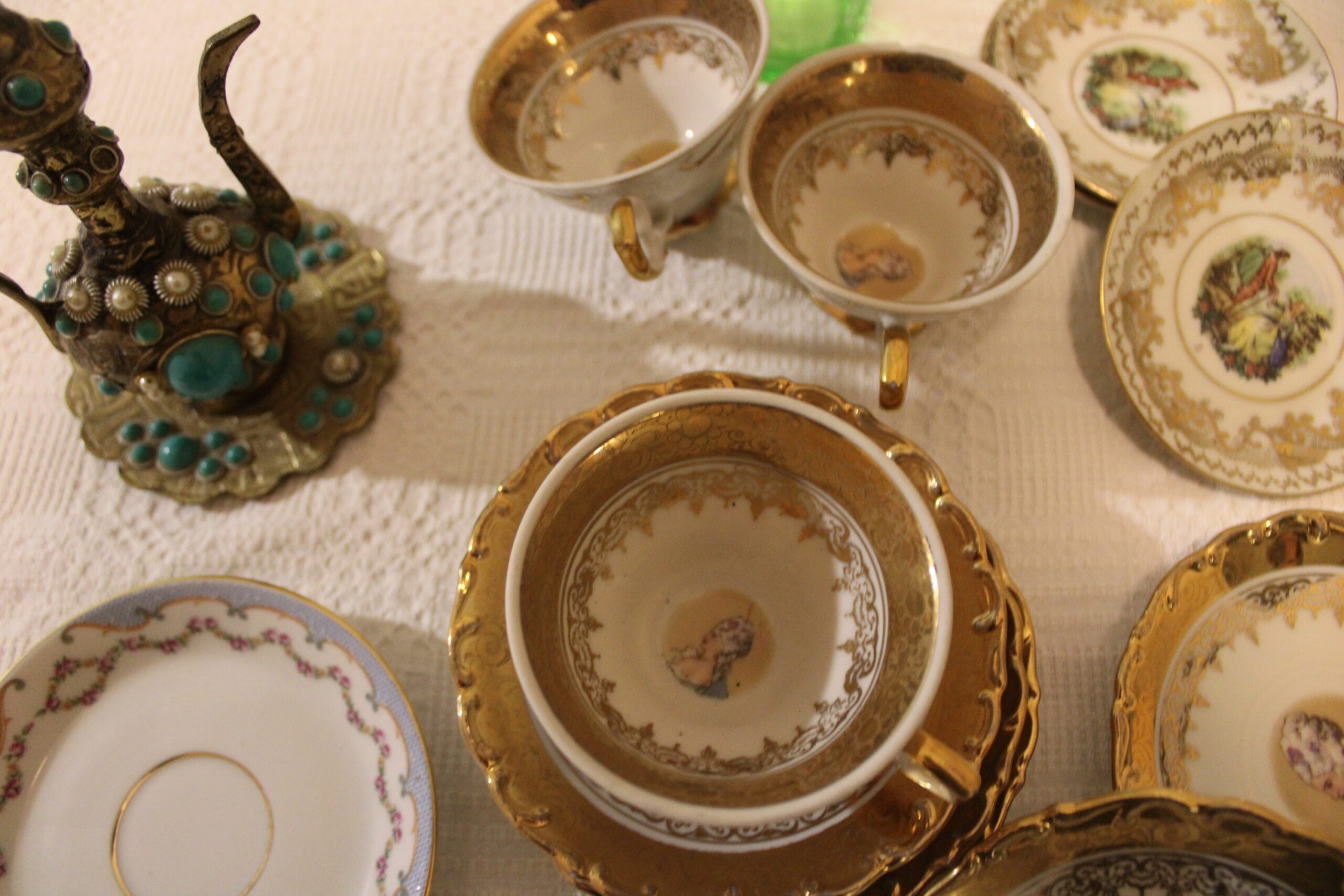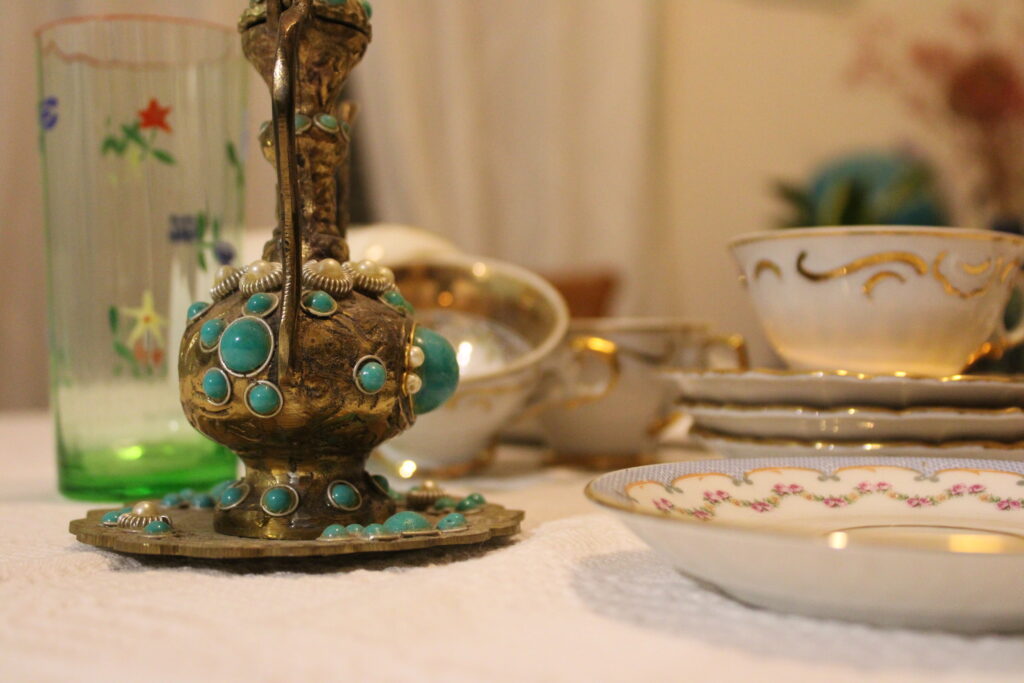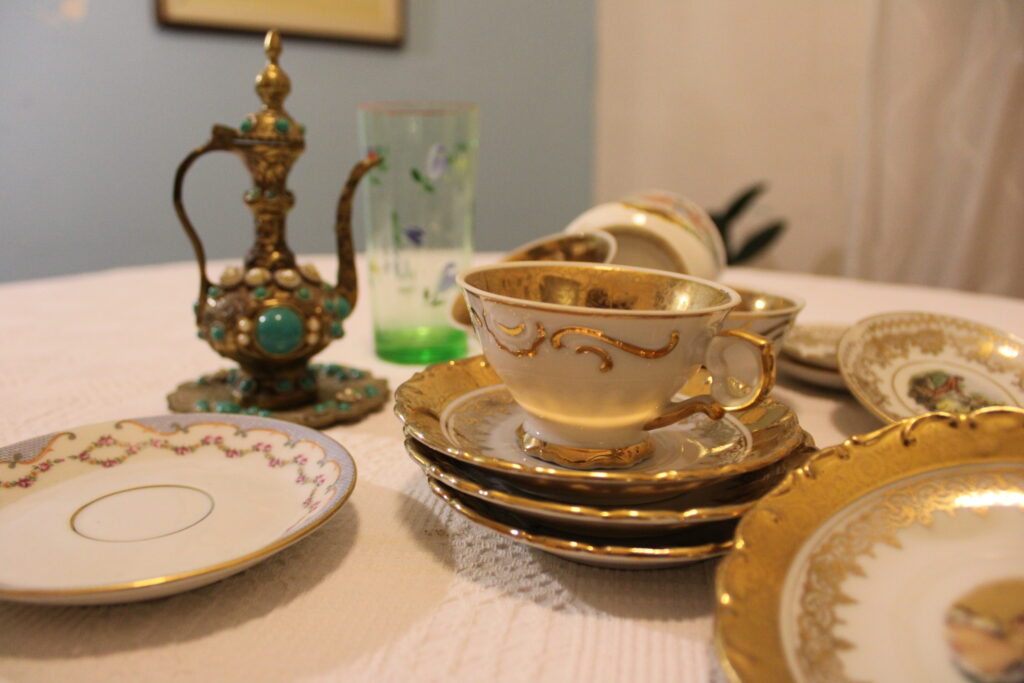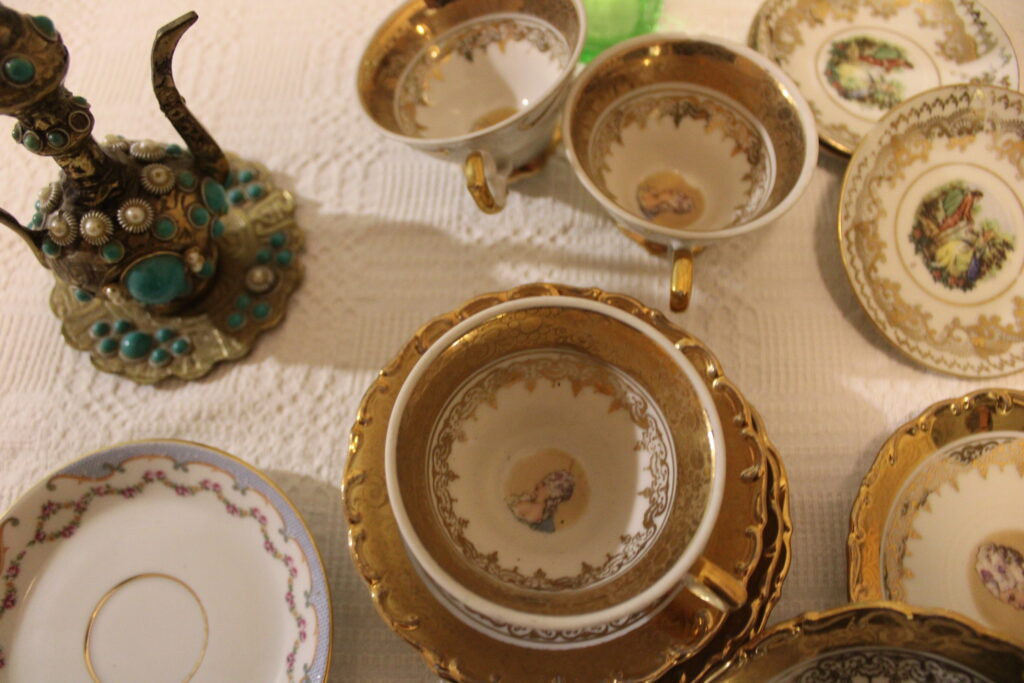Virginia Spanoudi was born in Constantinople in 1914. Her mother, Kyriaki, worked in the house of a wealthy Greek in Peran (Beyoğlu) who helped with her daughter’s education. Virginia spoke English and French and found work as a seamstress. She married Fotis Vakalopoulos, a constructor. Unlike Virginia, Fotis was not a Turkish citizen.
Virginia’s father, Stefanos, left his family behind in Constantinople and migrated to Odessa in an effort to escape conscription in the Turkish army. He lost contact with his wife and met Evdokia Gorbatzova, with whom he had a son, Alexandros. After the Soviet Revolution, they left Odessa and settled in Triandria, in Thessaloniki, where the couple had their second son, Ioannis. Stefanos died during the first few years of the German occupation, soon followed by Evdokia. Shortly before he died, Stefanos revealed to his sons that they had a half-sister back in Constantinople. Alexandros searched for Virginia and managed to locate her and visit her.
The persecution of the Greeks of Constantinople during the autumn of 1955 forced Virginia, her husband and her mother to find refuge in Thessaloniki, where her brother, Alexandros, lived. Virginia had kept in touch with Alexandros ever since his first visit. Her family originally settled in Ano Toumpa, in one of the houses granted to the Greeks of Constantinople. The wider area was also populated by refugees from earlier migration waves. In 1956, one year after they made it to Thessaloniki, Virginia lost her husband. She was 42 years old and even though her husband was dead, her doorbell label still read: ‘Virginia Vakalopoulou’.
From Constantinople she had brought whatever could fit in a green chest, including personal items, clothing, jewellery, some household items and furniture.
Today, whatever is left of the household Virginia brought with her from Constantinople belongs to her brother’s, Ioannis, granddaughter, Natassa Spanoudi. Natassa fondly remembers Aunt Virginia talking about her cosmopolitan life, writing to relatives in America, or narrating her memories. She remembers the Sunday lunches at Aunt Virginia’s which ‘looked like something out of the film “A touch of spice”. I often watch this film because it reminds me of my aunt; her cooking, her accent’. Virginia died in Thessaloniki in 2013, shortly before her 100th birthday.
Natassa lives in Athens now. She often wears Virginia’s brooch and drinks coffee out of the coffee cups of her ‘aunt from Constantinople’ who spent the second half of her life in Thessaloniki. By using these objects in her everyday life, Natassa keeps the memories of her family’s migration alive, giving them a prominent position in her everyday life instead of hiding them away in the green chest that accompanied Virginia to Greece. In this way, she is extending the objects’ migration journeys and prolonging their history.




